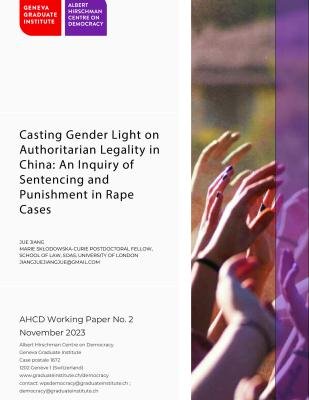By Jue Jiang
This research provides a rare yet much-needed gender perspective on authoritarian legality in China, drawing upon sentencing and punishment for the crime of rape. First, several controversial cases – cases extensively discussed in the media or online – are reviewed to identify the attributes that triggered the controversy. Four categories of cases were selected, based on four sexual relationships embodying various power dynamics between the offender and the victim: public official and citizen/sex worker; husband and wife; adult and child; caregiver and dependent. A search was then made for “like cases” using these attributes as keywords in the China Judgments Online database. Finally, a qualitative analysis of these cases was carried out, in particular of the judicial reasoning provided by the judges, to explore how these controversial cases are handled by the judiciary, and the implications of this on the interplay between gender, sex, sexuality and authoritarian power in the context of authoritarian legality in China. This research argues that the criminal justice system in China embodies and reinforces a particular gendered order and “sex hierarchy,” instrumentalised by the state to maintain its authoritarian power.
The Albert Hirschman Centre on Democracy series Law and Authoritarianism. 2023, 69pg


